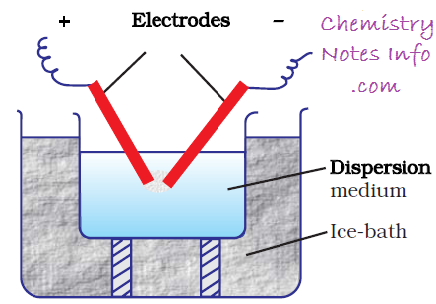Physical Chemistry
Definition of Physical Chemistry- Physical chemistry is the branch of chemistry. Physical Chemistry utilizes
applications of physics to chemical systems to understand their physical
properties.
 Physical
chemistry is the study of atomic, subatomic, macroscopic,
microscopic or particulate phenomena in chemical systems in terms of different laws
and concepts of physics. Physical chemistry applies the principles and concepts
of physics such as thermodynamics, force, time, energy, motion, statistical
mechanics, quantum chemistry, dynamics and equilibrium.
Physical
chemistry is the study of atomic, subatomic, macroscopic,
microscopic or particulate phenomena in chemical systems in terms of different laws
and concepts of physics. Physical chemistry applies the principles and concepts
of physics such as thermodynamics, force, time, energy, motion, statistical
mechanics, quantum chemistry, dynamics and equilibrium.
Physical properties
of different type of chemical substances can be studied on different scales
like atomic, subatomic, macroscopic and microscopic.
Atomic
Atomic properties are properties related to atoms or
elements. Atomic numbers, atomic weight, oxidation state, electron per shell,
electronic configuration, and atomic radius are example of atomic properties.
Atomic Properties of Element Carbon
- Chemical Symbol: C
- Atomic Number: 6
- Atomic Weight (Relative Atomic Mass), u (g/mol): 12.0107
- Oxidation States: -4, +2, +4
- Electrons Per Shell: K2 L4
- Electronic Configuration: 1s22s22p2
- Atomic Radius, pm: 67
Subatomic
Subatomic properties are properties related to study ofsubatomic particles and research on energy and waves. This is part of advanced
physical chemistry or nuclear chemistry.
Microscopic
Microscopic properties are properties related to microscopic
level like shape and structure of crystals and molecules with the use of light
microscopes, electron microscopes, and scanning probe microscopes
Macroscopic
Macroscopic properties are properties of substances which describe
how relatively large quantities of the substance behave as a group, for example
melting points (M.P.) and boiling points (B.P.), vaporization and latent heats
of fusion, specific heat capacity, thermal conductivity, coefficient of linear
thermal expansion and many other physical properties.
For example, water exist in three states i.e. Solid-Ice,
Liquid-Water, Gas-Steam. When we cool steam it turns into water and on further
cooling water convert into ice.
Branches of Physical Chemistry
Physical chemistry has many branches some of them are
described below-
Electrochemistry
Electrochemistry is the branch of physical chemistry
which deals with the studies of relationship between electricity and chemicals.
Photochemistry
Photochemistry is the branch of physical chemistry
which deals with the chemical effects of light. Photo-Chemistry describes
chemical reaction caused by absorption of ultraviolet radiation (wavelength
from 100 to 400 nm), visible light (400 – 750 nm) or infrared
radiation (750 – 2500 nm).
Thermochemistry
Thermochemistry is the branch of physical chemistry
which deals with the study of the energy and heat associated with chemical
reactions and physical transformations.
Spectroscopy
Spectroscopy is the branch of physical chemistry
which deals with the study of the interaction between matter and
electromagnetic radiation.
Chemical Kinetics
Chemical Kinetics is the branch of physical chemistry
which deals with the study of rates of chemical processes. Chemical Kinetics
is also known as Reaction Kinetics,
Quantum Chemistry
Quantum chemistry is the branch of physical chemistry
which deals with the application of quantum mechanics in physical models and chemical
systems. Quantum chemistry is also known as molecular quantum mechanics.
Surface Chemistry
Surface science is the branch of science which deals
with the study of physical and chemical phenomena which occurs at the interface
of two phases. Surface science includes the fields of surface
chemistry and surface physics.
Solid-State Chemistry
Solid-state chemistry is the branch of physical
chemistry which deals with the study of structure, synthesis, and properties of
solid phase materials. Solid-state chemistry also known as materials
chemistry.
Biophysical Chemistry
Biophysical chemistry is the branch of physical
chemistry which deals with the uses of concepts of physics and physical chemistry
for the study of biological systems.
Video on Physical Chemistry
Some Images of Physical Chemistry
Related:











%20(1).png)
